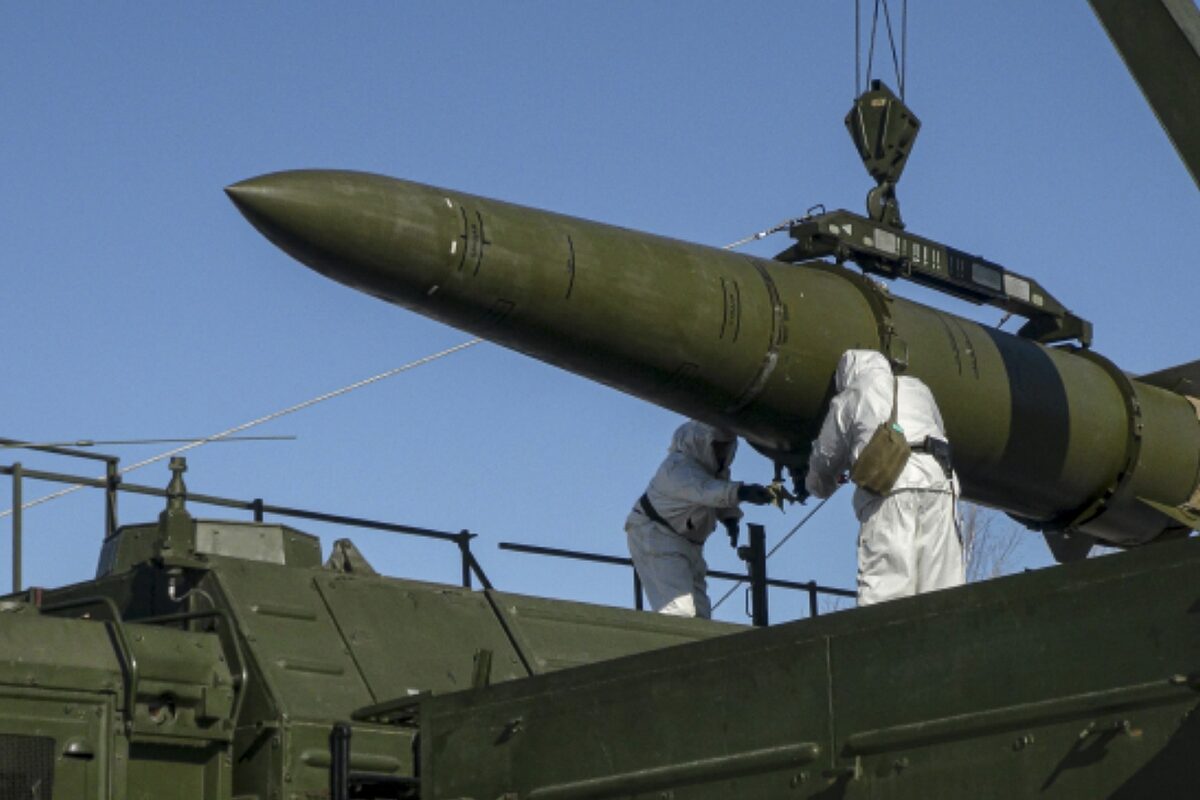Joseph S. Nye Jr., a former dean of Harvard Kennedy School, is a former U.S. assistant secretary of defence and author of the memoir A Life in the American Century.
Eight decades have passed since the energy contained within an atom was used in warfare. Yet rather than suffering nuclear Armageddon, the world has achieved a surprising nuclear stability – so far. Equally remarkable, while nuclear technology has spread to many countries, only a small fraction have chosen to use it to develop weapons. The world has benefited from an effective nonproliferation regime, a set of rules, norms and institutions that have discouraged – albeit haltingly and imperfectly – nuclear proliferation. But can it survive an era of rapid geopolitical shifts?
In 1968, the Nuclear Non-Proliferation Treaty (NPT) was negotiated, which recognized that five states already had nuclear weapons, but secured pledges from others not to develop them. For decades, the Vienna-based International Atomic Energy Agency (IAEA) has sent inspectors to countries developing nuclear energy to ensure that it is used only for civilian purposes. And in the 1970s, U.S. President Jimmy Carter’s administration placed a high priority on slowing proliferation, in part through the newly created Nuclear Suppliers Group, whose member states pledged restraint in the export of sensitive enrichment and reprocessing technology.
This nonproliferation regime has become an important part of the world order, but some analysts believe it faces new threats. Even IAEA director general Rafael Mariano Grossi worries about its future. The most visible challenge is Iran‘s program for enriching uranium above 60 per cent – far beyond what is needed for use in civilian reactors. Mr. Grossi estimates that Iran could make a bomb in a matter of months, not years; and if it does develop a nuclear weapon, Saudi Arabia says it will follow suit and drop out of the NPT. Israel and the United States are threatening to use force to stop Iran, even as the U.S. and Iran engage in new negotiations over limiting Iran‘s nuclear program.
Beyond this regional challenge in the Middle East lurks a global threat to the nonproliferation regime. After the Second World War, Germany and Japan limited their own nuclear plans because of their alliance with the U.S. The credibility of American nuclear deterrence was sufficient to provide them with security, and the same has been true for dozens of other states, both in NATO and in East Asia. But now that the Trump administration is weakening these alliances, it has also weakened America’s extended deterrence, prompting others to examine whether they should have their own nuclear weapons. They are well aware that Ukraine gave up the Soviet-era nuclear weapons stationed on its soil, only to be invaded by Russia (which had guaranteed Ukraine’s territorial integrity in the 1994 Budapest Memorandum).
Some analysts say we should not worry, because proliferation would have beneficial effects on world politics. Just as nuclear weapons sustained prudence in U.S.-Soviet relations, they contend, so might nuclear weapons stabilize regional power balances today.
But this more-is-better attitude would be tenable only if the political conditions were similar. It presupposes stable command-and-control systems; an absence of serious civil wars or destabilizing motivations (such as irredentist passions); and discipline over the temptation to launch preemptive strikes during the early stages of a conflict, when new nuclear weapons capabilities are soft and vulnerable.
Such assumptions are unrealistic in many parts of the world. Far from enhancing security, the first effects of acquiring a nuclear capability in many circumstances may be to increase one’s vulnerability and insecurity. Moreover, even a local, “tactical” nuclear strike would be a serious breach of an 80-year global taboo. One also must consider the destabilizing roles that non-state actors could play. Even if the risk of a terrorist group acquiring a nuclear device is low, the mere possibility creates severe challenges.
Obviously, political and technical trends will continue to change. But the key question concerns the future of U.S. alliances and extended deterrence. Given that proliferation could be destabilizing, that nuclear weapons do not always enhance the acquiring state’s geopolitical position, and that superpowers cannot fully escape the effects, there should be a strong global interest in maintaining the nonproliferation regime.
Under the current circumstances, some inequality in weaponry is acceptable to most states because the alternative – anarchic equality – is more dangerous. As long as countries can be made better off without a bomb than with one, a policy of slowing the spread of nuclear-weapons technology will rest on a strong foundation. Realistically, an international regime does not need perfect adherence to have a significant constraining effect. But once erosion of the norms and institutions begins, it may be hard to stop.
Copyright: Project Syndicate, 2025.
